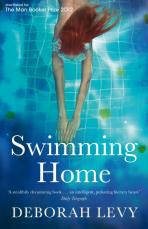
Historical fiction can be historically bad. You only have to speak to a Medieval History professor about The Da Vinci Code to witness the anger it can cause. Common misrepresentations of the past can cause some historians to foam at the month, like the belief that witches were burnt at the stake (they weren’t, they were hung). It’s unusual, then, that a historical book emerges that is praised as brilliant from historians, literary figures and the general public alike, and this has what’s happened with Hilary Mantel’s Bring up the Bodies.
The book is a sequel to Wolf Hall, which won the Man Booker prize, as did Bring up the Bodies, making Hilary Mantel the first author to ever win the prize for two consecutive books, and also the first female to ever win the prize twice. It has won Costa Book of the Year and is nominated for the Women’s Prize for Fiction. So it’s had a hell of a lot of attention and praise given to which, for me, is all certainly deserved.
First off there is the fact that she takes the Tudors, an era which has had endless interpretations, and manages to make it truly exciting. Bring up the Bodies follows the fall of Anne Boleyn, her rise having been depicted in Wolf Hall, through the eyes of Thomas Cromwell. You feel the mood turn against Boleyn and the fear in the court as the King’s mood starts to change and everyone becomes a potential headless victim. Its depiction of Cromwell as Machiavellian might seem over-done, but Mantel’s brilliance is in showing that this was the only way to survive during the reign of a temperamental king.
Mantel’s writing style also helps build the mood. Everyone knows that Boleyn, along with several of her allies, end with their heads been chopped as a result of the King wanting to be free of her, yet Mantel’s frequent use of the present tense helps to keep the tension up. We might know what’s going to happen but the characters certainly don’t, and the present tense helps us remind us of this.
One of the scenes in the book sticks in my mind, like only a masterful constructed scene can. Cromwell has gone to visit Katherine of Aragon, who is being kept under house arrest and separated from her daughter and friends for her refusal to let the King go. Mantel manages to paint the scene with an eerie sense of foreboding; this might be because we know that Boleyn’s fate is much worse but Mantel also makes it clear that Katherine knows the King and knows he will get bored of Anne. Mantel makes us see it and also makes Cromwell see it. It’s one of the most striking scenes I can remember.
Historical fiction is sometimes said to be an oxymoron. Mantel manages to make something that sticks with most historical facts and still manages to entertain. She makes the public understand that faction played part in the Henrican Court whilst also showing the childishness of Henrys decisions. In truth, the historical and literary genius of the work doesn’t really matter. Just get lost in the mood of the work, as it is a truly amazing achievement that deserves all the praise it can get. If there is one flaw, it’s that it ends. But don’t worry, the fall of Cromwell is coming.






Engage, Engage, Engage
The real problem with politics is not that it’s led by posh people who come from an exclusive club. They may not know the price of milk but at least they know about politics. The real problem is the lack of engagement from the grassroots, a local level from local people. The real problem of politics is that most ordinary people just aren’t engaged with it anymore and so a politician can really make any statement and it could be greeted with applause depending on how it is delivered or represented.
This means that people are simply accepting other people’s views, whether it is the view expressed in a newspaper or a family member. Without truly looking at the issues, views are immediately formed on the basis of a complete lack of information.
I watched Question Time and noticed something. It’s a British politics show that has a panel of MPs, newspaper columnist, and people generally involved in politics. Their given questions from members of the public on the most topical issues of the week. One of the questions this week was on the issue of welfare and the audience seemed to be applauding almost everything that was said. The views of the Conservative and Labour party are dramatically different yet, when they were expressed on the show, a huge round of applause greeted both. Is this just that they supporters were in the same number or are people generally confused?
I believe that people are generally confused. They are bombarded with information by the media and it comes attached with their very own viewpoint. Essentially they are been fed propaganda by both sides. Yet, because no one is engaged in politics anymore, this propaganda is not dismantled. The facts are never truly shown and people end up applauding both ends of the view point.
I’m not proclaiming that I have worked through the propaganda of both the left and the right. I simply do not know what I believe about the main issues of the day. The NHS, welfare, the EU. But I believed that if, in some way, everyone could begin to be engaged in politics then we would begin to arrive at some solution that we all want. People would stop spurting party lines and applauding propaganda, they would begin to govern for themselves.
I suppose what I’m talking about is grassroots organisations. In my view they isn’t enough. I haven’t heard about any in my area and my area is a prime target for one. It’s a working-class northern town where issues of welfare will be most felt. I think this needs correcting, but who to do it?